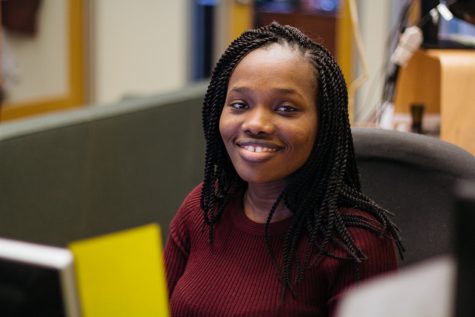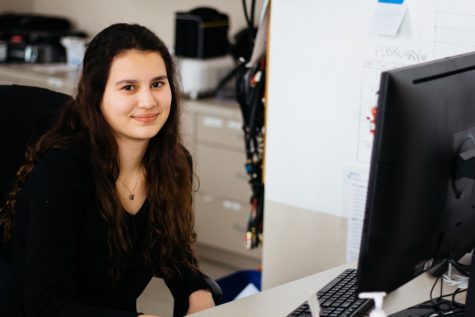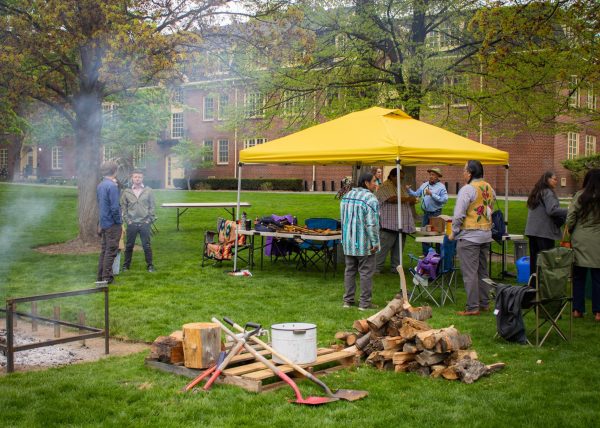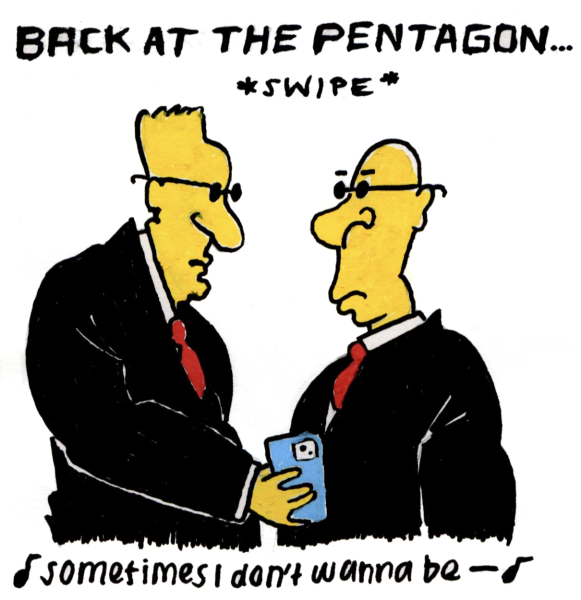What is Work Study?
February 2, 2017
Regardless of whether they receive work study or not, ask the average Whittie to define ‘work study,’ and chances are they will have a difficult time answering completely. While most know the term refers to financial aid, few know precisely how work study operates on campus and in students’ lives.
Faith Nyakundi ‘17, the Student Engagement Center’s (SEC) Employment Intern, and Marisol Becerra, administrative assistant to the SEC, aim to change that. The pair strives not just to raise awareness regarding what work study is, but they seek to increase the amount of students who meet their work study awards through working at on-campus jobs.
As defined by studentaid.ed.gov, federal work study “provides part-time jobs for undergraduate and graduate students with financial need, allowing them to earn money to help pay education expenses.”
At Whitman, work study takes the form of a yearly award, usually in the range of $750 to $2500. The money is neither a grant nor a loan, but rather may be earned by students, who receive earnings in the form of a paycheck or direct deposit to their bank accounts.

According to Nyakundi, work study is intended to provide a supplementary source of income to cover expenses like books, going out to eat with friends and the miscellaneous expenses of living on a college campus.
“A student might have a full financial aid package, but there are small expenses, and so people depend on the jobs to raise whatever amount it might be in a semester,” Nyakundi said.
But what about when students do not take advantage of their work study? While Nyakundi and Becerra do not have exact numbers, a recent survey they conducted to the incoming classes of 2015 and 2016, which garnered about a 30 percent participation rate, places the number of incoming students who choose not to work at just over 40 percent. The reasons for this choice are many.
“Some students feel like they can’t do social life, academics and have a job on top of that,” Nyakundi said.
At other times, students would like to find a job, but among all the other stresses of starting school, securing employment is postponed or forgotten, or students have difficulty getting a job and give up.
Incoming students are especially at risk for not landing a job in their first semester.
“We’ve all been incoming students. You know that in that one week there’s orientation, there’s so much you’re thinking about. While returning students already know the lay of the land, we have all these new students who have no idea and who have to figure this out,” Nyakundi said. “It’s not a very fair playing field.”
This makes it difficult for the SEC to help students locate jobs, as many positions fill up in the fall.
International students are another group who, with all the challenges of starting school in a new country, are more likely than others to neglect getting a job.
Nyakundi stresses that students receive work study because the school has determined based on the student’s financial profile that he or she needs the extra money.
“It means that if you don’t earn it, chances are you’re going to struggle somewhere else,” Nyakundi said.
The question is, where do work study students without jobs find that extra money? While Nyakundi explained more research will have to be done to get a clearer picture, she knows some students resort to working over the summer, asking parents for money or taking out an extra loan.
“That’s a loophole where [students] get on campus with an award and they try to find a job, and for the first year some people just don’t find a place,” Nyakundi said.
WORKING TOWARD SOLUTIONS
The issue of work study came on the table two years ago when the President’s Council initiated the creation of a task force to look into the issue. Representatives from the Student Engagement Center, Financial Aid, Human Resources, the Provost, Institutional Research and the Business Office, as well as several work study students, came together to form a task force examining student employment. According to payroll records, during the period of September-October 2014, only 46 work study eligible students were employed on campus.
Student employment in general was made a priority. While there was (and still is) no centralized office for student employment, the task of increasing accessibility to resources regarding student employment came under the purview of Becerra.
She explains this was in part because she was already working with students and employers in terms of handling time sheets and payroll and answering students’ questions about finding on-campus jobs.
“The first year [of the efforts] was focusing more on how students were going to get jobs on campus and that they weren’t meeting their work study award,” Becerra said.
That was two years ago. About six months later, the position of Student Employment Intern within the SEC was created to focus specifically on work study for students, and Nyakundi was hired to this role in 2015 during the fall of her junior year.
“[My role] basically just started out as an effort to centralize work study, or just employment resources to students,” Nyakundi said.
For example, Nyakundi noted that Whitman lists info regarding student employment on three different websites.
Becerra and Nyakundi began taking a variety of concrete actions to pursue their goal of raising awareness around work study and making it more accessible for students.
The two hold workshops to educate students about work study, which includes meeting with the students from the Summer Fly-In Program and speaking at the mandatory financial aid meeting for first year orientation.
One of the largest projects Becerra and Nyakundi took on is the creation of an On-Campus Job Catalogue, available under the Student Life tab of Whitman’s website, which lists all available student jobs on-campus and descriptions of those jobs. To compile the catalogue, Becerra and Nyakundi met with every department that employs students on campus.
In addition to working on the student end of things, Nyakundi and Becerra have spent much of the past year and a half advocating to employers to give priority to work study students. While Nyakundi and Becerra have faced some resistance, by and large campus employers have been extremely supportive.
“I think some people just didn’t know about it, or didn’t know that this was as big of a challenge as it was,” Nyakundi said. “With a bit of education and more people being aware of it, we’ve had a lot of support, about 99 percent support.”
While ensuring employers understand the importance of work study, Nyakundi works to make sure students are also clear on what it means to be awarded work study.
“It doesn’t mean that you deserve this and then you don’t have to work for it; it means that we understand that you need this, so work with us to make sure that you get your financial aid award,” Nyakundi said. “So it’s a win win on both sides.”
This past fall, Nyakundi and Becerra organized the first ever student job fair. They sought to bring together students and employers in a new way and encourage students to be proactive in job-seeking. About 150 students and twelve offices on campus attended the fair.
“The idea was just to give an opportunity to students to meet potential employers, and even if they didn’t get hired on the spot, they actually knew what offices, what kinds of positions are available to them,” Nyakundi said.
The fair went even better than Nyakundi hoped, and she considers it of one of her highlights of her work in the past year and a half.
“Most of the employers who showed up actually hired from the people they had conversations with, so we found that it was a success,” Nyakundi said.
Indeed, the success of Nyakundi and Becerra over the past two years is reflected in the numbers. Data from November-December 2016 shows that 64.7 percent of 465 work study eligible students are working on campus this year.
In looking ahead to the coming semester, Becerra hopes to hold a spring job fair for those students who did not get a job in the fall.
“By doing that, I believe that we will get those students who are still struggling,” Becerra said. “I feel that there’s still a lot of students that can benefit.”
Nyakundi emphasizes that she and Becerra’s efforts have been collaborative with many offices on campus, from Human Resources, Admissions, Financial Aid and any other office that works with students on campus.
“I work from the SEC, but it’s a school wide initiative,” Nyakundi said.
STUDENT PERSPECTIVES
First year Bella Rivera attended the job fair put on by Nyakundi, Becerra and the SEC this past fall. Rivera landed her on-campus job working with Instructional Media Services (IMS), a component of Technology Services, through inquiries she made at the fair.
Rivera, who has experience running the soundboard for services and funerals at the church she belongs to in L.A., sought a job in technology services similar to her prior work. She was instructed by the people at the Tech Services booth to apply to IMS, where she now works renting out tech equipment, assisting professors with tech issues in the classroom and screening films for various campus events.
Rivera noted that having the extra cash work study provides her has been helpful, and that she appreciates the experience she has gained working for IMS.

“I’ve definitely learned a lot more. I can work a lot of things better, like I know how to work all of the systems, in Olin, Maxey, Hunter, everywhere,” Rivera said. “I can run all the film screenings in there and it’s kind of fun going into the projection booths and seeing how everything works.”
Senior and international student Maria Setyoyudo considers work study to be especially useful in her first and second years at Whitman. As a scholarship recipient of Davis UWC, most of Setyoyudo’s expenses were covered, but work study helped cover any loose ends.
“Work study was really helpful to me during my first two years at Whitman because I still needed to pay a little bit, because the room and board is really expensive,” Setyoyudo said.
Furthermore, having the security of extra money removes some of the burden of adjusting to a new place.
“I think it’s a really great thing to do during the during the first years because you’re still adapting to the new environment, and sometimes it’s stressful if your parents are not really helping you or you feel like you don’t want to burden your parents, then you have this extra award,” Setyoyudo said.
ONWARD
For both Nyakundi and Becerra, hearing about students successfully finding jobs and seeing the numbers that prove it is the greatest reward their work offers.
“For me it’s just all the success stories. I love, I love, I love the notes or testimonies if I may call them that,” Nyakundi said.
Becerra, who handles much of the behind-the-scenes data crunching for the project, mentioned that it’s gratifying to see that even though she is working with numbers, she is making an impact on students’ endeavors.
“It’s a student coming in saying ‘Thank you, I was able to secure a job,’” Becerra said.
She added, “And then again, I love numbers. I have to say that. I cannot get tired from scrolling through numbers.”
Nyakundi explained that seeing these concrete statistics that show more students finding employment makes her feel optimistic about the future of work study at Whitman and the legacy she will leave behind.
“Just seeing that happen, even if it’s on a small scale, gives me hope that this could actually be a tradition that takes root on campus, and I think that’s what makes this fun to do,” Nyakundi said.









Anubhav Sinha • Feb 3, 2017 at 10:42 pm
The article was extremely informative. I am a prospective international student with financial need. Will I receive an aid? How wil I cover my daily living costs? Questions like these have always worried me a lot.
The concept of work study in a great opportunity to cover my daily miscellaneous expenses. I feel that work study will also provide me with an experience which I might not get by just reading books and also make me self-reliant. I am definitely looking forward for the work study programs and make the most out of them.
Faith Nyakundi • Mar 21, 2017 at 12:31 pm
Hi Anubhav,
I would be glad to respond to you questions, please send me an email ([email protected]). For the questions you asked above: If you are an international student with financial aid, you will be receive something equivalent to a work study award. This you will earn by working on campus. Good news is close to 100% percent of the international students find jobs on campus, and this is how most of us cover our daily expenses. There are also several avenues you can find aid.
I hope that helped. Please contact me or financial aid ([email protected]) with any more questions.